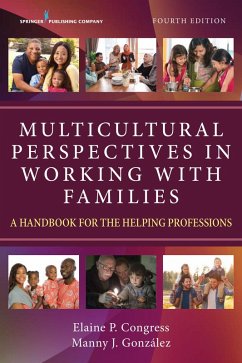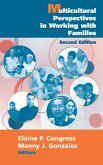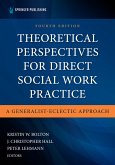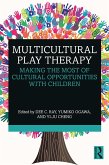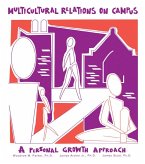Note to Readers: Publisher does not guarantee quality or access to any included digital components if book is purchased through a third-party seller.
Features a new intersectional approach to assessment and treatment and interweaves the perspectives of psychologists
Focusing on critical emerging issues in regard to multicultural families, the fourth edition of this popular book reflects fundamental issues surrounding assessment and treatment of families from diverse cultural backgrounds. The most effective treatment methods for working with culturally diverse families across the life cycle are covered in detail. Individual chapters focus on a variety of distinct ethnic groups including African American, Hispanic, Asian American, Native American, and Arab American, as well as the needs of LGBTQ multicultural families and the role of spirituality.
The text underlines the importance of an intersectional approach to working with families that, in addition to culture and ethnicity, also considers socioeconomic class, gender, age, religion, immigration status, and sexual orientation as important factors. Additionally, the text expands its direct-practice view with the addition of four new chapters written by psychologists, plus a new chapter on health issues in multicultural families and access to health services. The text is updated with the latest knowledge and research, along with new and revised case vignettes demonstrating culturally competent practice.
Features a new intersectional approach to assessment and treatment and interweaves the perspectives of psychologists
Focusing on critical emerging issues in regard to multicultural families, the fourth edition of this popular book reflects fundamental issues surrounding assessment and treatment of families from diverse cultural backgrounds. The most effective treatment methods for working with culturally diverse families across the life cycle are covered in detail. Individual chapters focus on a variety of distinct ethnic groups including African American, Hispanic, Asian American, Native American, and Arab American, as well as the needs of LGBTQ multicultural families and the role of spirituality.
The text underlines the importance of an intersectional approach to working with families that, in addition to culture and ethnicity, also considers socioeconomic class, gender, age, religion, immigration status, and sexual orientation as important factors. Additionally, the text expands its direct-practice view with the addition of four new chapters written by psychologists, plus a new chapter on health issues in multicultural families and access to health services. The text is updated with the latest knowledge and research, along with new and revised case vignettes demonstrating culturally competent practice.
- NEW TO THE FOURTH EDITION:
- Provides a new intersectional approach to assessment and treatment
- Adds the perspectives of psychologists in four completely new chapters
- Includes a new chapter on DSM-5 from a multicultural perspective, plus new chapters on health and access to health services
- Offers the most up-to-date knowledge and research
- Provides new and updated case vignettes
- Reflects changes in the family unit over the last quarter century and how they impact treatment
- Addresses distinct sociopolitical issues affecting immigrants and undocumented families
- KEY FEATURES:
- Focuses on the most important emerging issues of multicultural families
- Covers multicultural mental health across the life span
- Encompasses the distinct perspectives of different ethnic and racial groups and those of LGBTQ families
- Discusses domestic violence and substance abuse in regard to multicultural families
- Delineates the most effective treatment methods
- Examines the culturagram as a useful assessment and treatment planning modality
- Addresses ethical issues including the NASW code of ethics
Dieser Download kann aus rechtlichen Gründen nur mit Rechnungsadresse in A, D ausgeliefert werden.

